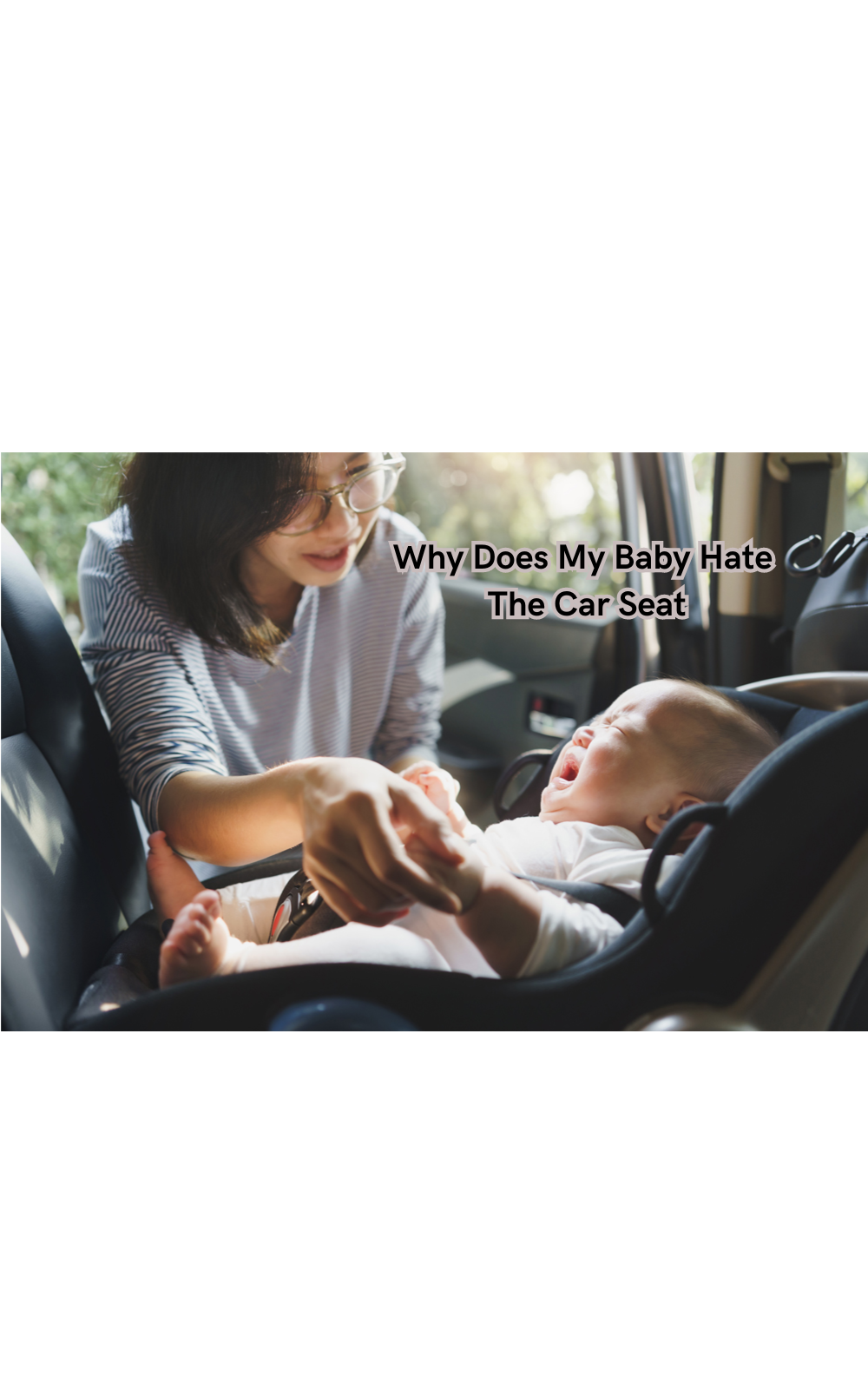Why Does My Baby Hate The Car Seat
Let's explore solutions to ensure smoother travels for both you and your little passenger.

Understanding why your baby may dislike the car seat is crucial for both their safety and your peace of mind.
Babies often express their discomfort in the car seat due to various reasons, including unfamiliarity with the restraint, feeling confined, temperature sensitivity, or even motion sickness. By delving into the underlying causes of their aversion, you can implement strategies to make car journeys more pleasant for your little one.
There are numerous ways to make car rides more comfortable and enjoyable for your baby, from adjusting the seat's positioning to providing soothing music or toys.
Let's explore solutions to ensure smoother travels for both you and your little passenger.
Importance of Car Seats
Car seats are essential for the safety of young children in vehicles. They protect them from potential injuries in case of an accident, making car journeys a much safer mode of transportation. However, it is common for babies to cry or fuss when placed in their car seats, which can cause distress for both the baby and the parent.
It is crucial to understand that this aversion to the car seat may not necessarily be due to discomfort or dislike but simply because the child feels restrained and confined in an unfamiliar environment.
Types of Car Seats
There are various types of car seats available in the market, each designed for specific age groups and sizes. It is essential to choose a car seat that is suitable for your baby's age and weight to ensure their safety and comfort. The three main types of car seats are:
- Infant car seats: These are rear-facing seats that accommodate newborns up to 2 years old or until they reach the maximum weight limit.
- Convertible car seats: These can be used rear-facing for infants and forward-facing for toddlers. In this seat, the baby's head is not as supported, causing discomfort.
- Booster seats: Designed for older children who have outgrown convertible car seats, booster seats provide an elevated seating position with a built-in harness or seatbelt.
It is important to follow the manufacturer's instructions when installing and using the car seat to ensure maximum safety and comfort for your baby. Convertible car seat options and booster seats are usually used in long car trips. Rear-facing seat options are used when your baby is still a premature baby and requires more protection for its delicate neck and spine. The back seat is generally recommended rather than the front seat for safety and airbag purposes.
Common Reasons Why Does My Baby Hate The Car Seat
There are several factors that may contribute to your baby's dislike of the car seat. Some potential reasons include:
Unfamiliarity with Restraint
Babies often dislike the car seat because they are not used to being restrained in a sitting position for an extended period.
This feeling of confinement and restriction can be overwhelming, especially if your baby is accustomed to being held or carried around. It may take some time for them to get used to the car seat, so it's essential to introduce it gradually and make it a positive experience.
Feeling Confined
The sensation of being confined can also trigger discomfort in babies. While car seats are designed to keep your little one secure, they can also restrict their movements, making them feel trapped.
Some babies may even develop a fear of tight spaces due to this feeling, which can exacerbate their dislike of the car seat. Bring some soft toys or books to distract your baby.
Temperature Sensitivity
Babies are more sensitive to temperature changes than adults, and being stuck in a car seat for an extended period can cause them to feel too hot or too cold. It's crucial to monitor the temperature inside the car and dress your baby appropriately for the weather.
You can also provide comfort items such as blankets or adjust the air conditioning to create a comfortable environment. Colicky babies may prefer a slightly warmer environment, while overheating can cause discomfort and irritability in others.
Motion Sickness
Motion sickness is not only limited to adults; babies can also experience nausea and discomfort during car rides. This condition occurs when there is a conflict between what your eyes see and what your inner ear senses, causing dizziness and other unpleasant symptoms.
Babies who suffer from motion sickness may cry, fuss, or vomit during car rides. If you suspect your baby is experiencing motion sickness, consult with their pediatrician for advice on how to manage it.
For premature babies and low birth weight babies, their vestibular system is still developing and more sensitive to motion sickness.
Baby is overstimulated
Babies have a lower tolerance for stimulation than adults, and long car rides can be overwhelming for them. The combination of movement, noise, and unfamiliar surroundings can overstimulate their senses and cause distress.
To reduce this effect, you can try to create a soothing environment in the car by playing soft music or using calming scents. You can also limit your baby's exposure to stimuli by covering the car seat with a light blanket or shade.
If you are a parent who is familiar with driving around with a crying infant and feeling helpless, keep reading to figure out how to handle the situation better.
Solutions to Make Car Rides Less Stressful
Now that we have identified the possible reasons why your baby may hate the car seat, let's look at some solutions to make car journeys more enjoyable:
- Introduce the car seat gradually and positively by using it in short trips around the neighborhood before embarking on longer journeys.
- Ensure that the car seat is properly installed and comfortable for your baby's age and size. Adjust the straps and padding accordingly.
- Provide entertainment such as toys or music to keep your baby occupied and distracted during the ride.
- Plan for breaks and stops along the way to allow your baby to stretch, move around, and get some fresh air.
- Avoid feeding your baby right before the car ride, as this can increase the chances of motion sickness. Instead, try to time feedings accordingly.
- Use a rear-facing mirror so you can keep an eye on your baby while driving and provide reassurance if needed.
- If possible, have another adult sit in the back with your baby during the car ride to provide comfort and attention.
With these tips in mind, you can make car rides a more pleasant experience for both you and your little one.
What Not To Do If Baby Hates the Car Seat
While it's understandable to want to ease your baby's distress during car rides, there are certain things that you should avoid doing:
- Do not remove your baby from the car seat while the vehicle is in motion. This can be dangerous and put both your baby and yourself at risk.
- Do not turn your child forward-facing before they reach the minimum age and weight requirements for their car seat. This can compromise their safety.
- Do not ignore or dismiss your baby's discomfort. It's important to address the issue and find ways to make car rides more comfortable for them.
Bouncers or strollers are not suitable alternatives to car seats for traveling in a vehicle. Always use a proper car seat according to your baby's age and size.
FAQs
Why is my fussy baby crying in the car seat?
Fussy babies may cry in the car seat due to feeling restrained or uncomfortable. It's common for babies to express their displeasure in this unfamiliar environment.
When can I turn my baby forward-facing in the car seat?
The American Academy of Pediatrics recommends keeping your child rear-facing until they reach at least two years of age or exceed the maximum weight and height limits for their car seat. This position provides better protection for their head, neck, and spine in case of a crash.
How can I calm my baby in the moving car seat?
To calm your baby in a moving car seat, consider playing soothing music, providing a favorite toy, or ensuring the temperature is comfortable to help alleviate their distress.
Are young babies more likely to dislike the car seat?
Yes, young babies, especially newborns, may find the car seat unsettling as they are still adjusting to different sensations and environments. Their discomfort can lead to aversion towards the car seat.
Conclusion
In conclusion, understanding why your baby may dislike the car seat is essential for addressing their discomfort and ensuring safer and more pleasant travel experiences.
By recognizing factors such as unfamiliarity, confinement, temperature sensitivity, or motion sickness that contribute to their aversion, you can proactively take steps to alleviate their distress.
Whether through adjusting the seat, providing comforting stimuli, or seeking professional advice, addressing your baby's discomfort in the car seat not only enhances their well-being but also fosters a more enjoyable journey for both you and your little one. Prioritizing your baby's comfort and safety during car rides is key to creating positive associations with travel.
